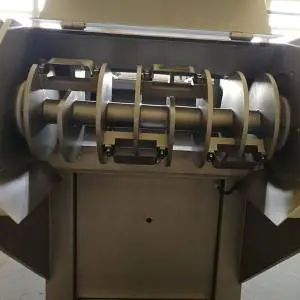
okt . 22, 2024 07:31 Back to list
Tenderizer Production Facilities Innovations in Meat Processing Methods
The Role of Tenderizer Factories in Meat Processing
In the meat processing industry, tenderization is a crucial step that enhances the quality and palatability of various cuts of meat. Tenderizer factories play a vital role in this process, utilizing different methods and technologies to ensure that meat products are not only safe for consumption but also delicious and tender. This article explores the operations of tenderizer factories, the techniques they employ, and their significance to both producers and consumers.
Understanding Tenderization
Tenderization refers to the process of breaking down tough muscle fibers in meat, thus making it softer and easier to chew. This is particularly important for cuts that are naturally tougher, such as beef chuck or pork shoulder. Tenderizer factories employ various mechanical and chemical methods to achieve this, ranging from mechanical tenderization to enzymatic treatments.
Mechanical tenderization typically involves the use of needles, blades, or other tools to physically break down the connective tissues in meat. This method not only enhances tenderness but also allows for the even distribution of marinades and seasonings, enhancing the overall flavor profile of the product. In contrast, enzymatic tenderization involves the application of natural enzymes, such as papain from papayas or bromelain from pineapples, which work at a molecular level to break down proteins.
The Processes in Tenderizer Factories
Tenderizer factories are equipped with specialized machinery to carry out these processes efficiently. Step one involves the selection and inspection of the meat to ensure only high-quality cuts are processed. Once the meat is selected, it undergoes the tenderization method appropriate for its type.
For mechanical tenderization, factories utilize machines that inject tenderizing needles into the meat. This process is meticulously monitored to ensure uniformity and minimize damage to the meat fibers. Following this, the meat may be marinated or seasoned, allowing the flavors to penetrate deeper due to the previous tenderization.
For enzymatic processes, factories carefully prepare enzyme solutions that are applied to the meat. The timing and temperature of this process are crucial; too long or too high a temperature can lead to over-tenderization, resulting in a mushy texture. Therefore, factories invest in precision monitoring systems to control these variables closely, ensuring consistent quality.
tenderizer factories

Quality Control and Safety
In addition to tenderness, safety is a paramount concern for tenderizer factories. As meat is processed, it must comply with strict health and safety regulations to prevent contamination. This involves routine testing for pathogens and adherence to sanitary practices throughout the manufacturing process.
Quality control mechanisms are also in place to ensure that the final product meets consumer expectations. Factories often conduct sensory evaluations and sample testing to gauge tenderness, juiciness, and flavor. Feedback loops allow for continuous improvement, making it possible for manufacturers to adjust their processes based on consumer preferences.
Impact on Consumers and the Market
The operations of tenderizer factories have significant implications for consumers and the meat market. By improving the tenderness of tougher cuts, these factories enable suppliers to offer a wider range of products at competitive prices. Consumers benefit from the increased availability of quality meat that does not require extensive cooking techniques to achieve tenderness.
Moreover, tenderized meat often allows for quicker meal preparation, catering to the busy lifestyles of modern consumers. The convenience factor, combined with improved flavor and texture, makes tenderized meat an attractive option for many households.
Conclusion
Tenderizer factories play an essential role in the meat processing industry, transforming tough cuts into tender, flavorful products that appeal to consumers. By leveraging advanced techniques and strict quality control measures, these facilities not only enhance the quality of meat but also contribute to a more efficient and accessible food supply chain. As the demand for tender meat continues to rise, the importance of tenderizer factories will undoubtedly grow, ensuring that consumers enjoy the best possible meat products in their meals.
Latest news
-
Premounted Side Disc for Efficient Operation - AI-Enhanced
NewsAug.04,2025
-
Pneumatic Clipping Machine - Shijiazhuang Bossin Machinery Equipment Co., Ltd.|Precision, Efficiency, Innovation
NewsAug.03,2025
-
Sausage Link Cutter JC999-03 | Fast & Precise Sausage Slicing Tool
NewsAug.03,2025
-
Pneumatic Clipping Machine- Shijiazhuang Bossin Machinery Equipment Co., Ltd.|Sausage Production Line, High Efficiency
NewsAug.03,2025
-
Pneumatic Clipping Machine - Shijiazhuang Bossin Machinery Equipment Co., Ltd.|Sausage Production Line, Efficient Meat Processing
NewsAug.03,2025
-
Pneumatic Clipping Machine-Shijiazhuang Bossin Machinery|Precision Efficiency
NewsAug.03,2025